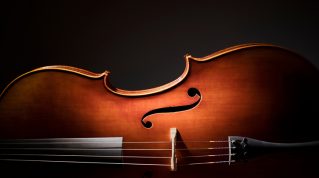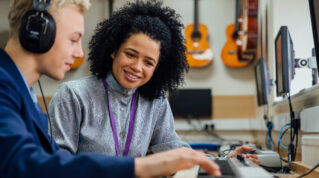A £1.5 million-a-year government trial to help disadvantaged children and those with SEND learn to sing or play an instrument has been launched.
Revealed in the previous government’s national plan for music education in 2022, the scheme is expected to support almost 1,000 youngsters over the next four years.
The Department for Education has allocated £2 million for the project, while Young Sounds UK, the organisation leading the initiative, will pay a further £3.85 million.
It will expand on the charity’s existing programme, Young Sounds Connect, which has been offering free music lessons and exams to primary and secondary pupils for the last 15 years.
CEO Hester Cockcroft said the government cash will “supercharge” the programme.
‘Supercharged’ music scheme
“Young Sounds Connect is designed to help young people from low-income families lead their own musical learning after whole-class lessons end.
“Fifteen years since it was first piloted, we’re delighted to be able to supercharge the programme model over the next four years through the music opportunities pilot.”
The project will involve 480 children across 10 English music hubs already on the connect programme. They will be joined by 490 others, with two more hubs added.
DfE figures show there are more than 1.6 million SEND pupils in England, while 2.1 million are eligible for free school meals.
Each hub will have its own music education expert who will coordinate work in the area support the youngsters and their families. They will also help to organise local teachers’ forums.

Originally called the music progression fund, the pilot was announced in the national music plan two years ago. The document also promised £25 million in new funding for musical instruments, and more cash for music hubs and primary PE and sports.
Schools minister Catherine McKinnell said the music opportunities pilot “will help break down the barriers to opportunity by widening access to the arts for more young people across the country”, alongside Labour’s curriculum and assessment review.
It comes after Schools Week revealed earlier this almost a quarter of secondary schools are not meeting the government’s expectation for key stage 3 pupils to be taught an hour of classroom music a week.
The expectation was introduced in September 2023 as part of the national plan. A similar aim was set for children in key stages 1 and 2.
But a Teacher Tapp survey of 1,256 senior leaders in state secondaries in May found that 16 per cent were teaching the subject for less than an hour a week, with 2 per cent not covering it at all.
















Your thoughts